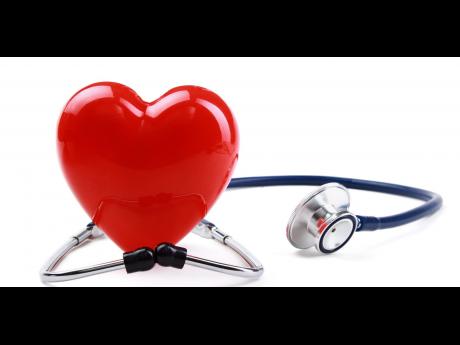Fit 4 Life | Target the muscles that matter most
By now, everyone should know that exercise and diet are paramount for heart health. Even light exercise like a half-hour brisk walk five days a week can improve cardiovascular health. And it's not just aerobic exercise that improves heart function, strength training also provides benefits to the heart.
Here are a few ways diet and exercise can contribute to cardiovascular health:
A more efficient heart
Training improves heart function in many ways. A trained heart has a much higher stroke volume - a fancy way of saying that it pumps more blood with each beat. When your heart beats, only a fraction of the blood in it is pumped out. As we start exercising, a greater percentage of that blood is pumped with each beat.
A trained heart can pump up to 95 per cent of the blood from the heart while working at 80 per cent capacity, compared to about 75 per cent for untrained persons. These factors make the trained heart function more efficiently, pumping more blood with less effort.
Bigger and stronger
As a muscle, the heart follows a general rule: it grows bigger and stronger with the right balance of work and rest and recovery, and grows weaker when we don't use it.
Training strengthens the heart. Equally important is the vascularization that occurs with regular exercise. That is, existing blood vessels grow bigger and more capillaries develop, providing a better supply of oxygen and nutrients to the heart.
Easy does it
A trained heart is bigger and stronger. A trained heart is more efficient. These improvements reduce resting heart rate as well as heart rate at the same load.
If the heart is bigger, stronger, and more efficient, it can pump the same amount of blood, or more, with fewer beats. Therefore, lower resting heart rate is an indicator of improved cardiovascular health.
No pressure
Exercise normalises blood pressure. Better cardiovascular function means a lower blood pressure. Exercise has been shown to cut blood pressure in as little as one month. Training can even reduce the need for blood pressure medication.
Healthy heart eating
Controlling fat intake reduces blood cholesterol and cuts the risk of coronary artery disease, atherosclerosis, heart attack, and stroke. Manage blood pressure by monitoring salt intake, especially from processed or fast foods.
- Marvin Gordon is a fitness coach; email: marvin.gordon@physiqueandfunction.com; yourhealth@gleanerjm.com

